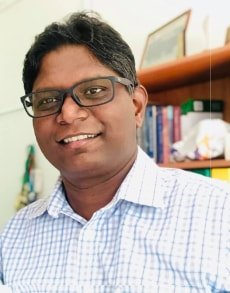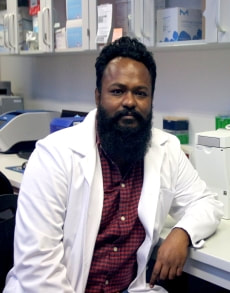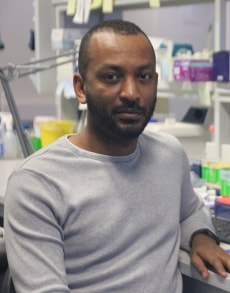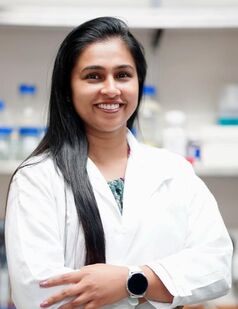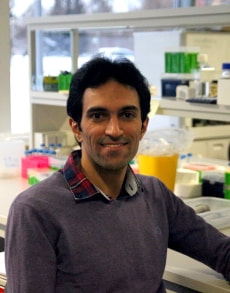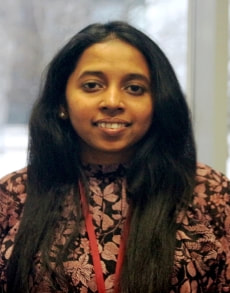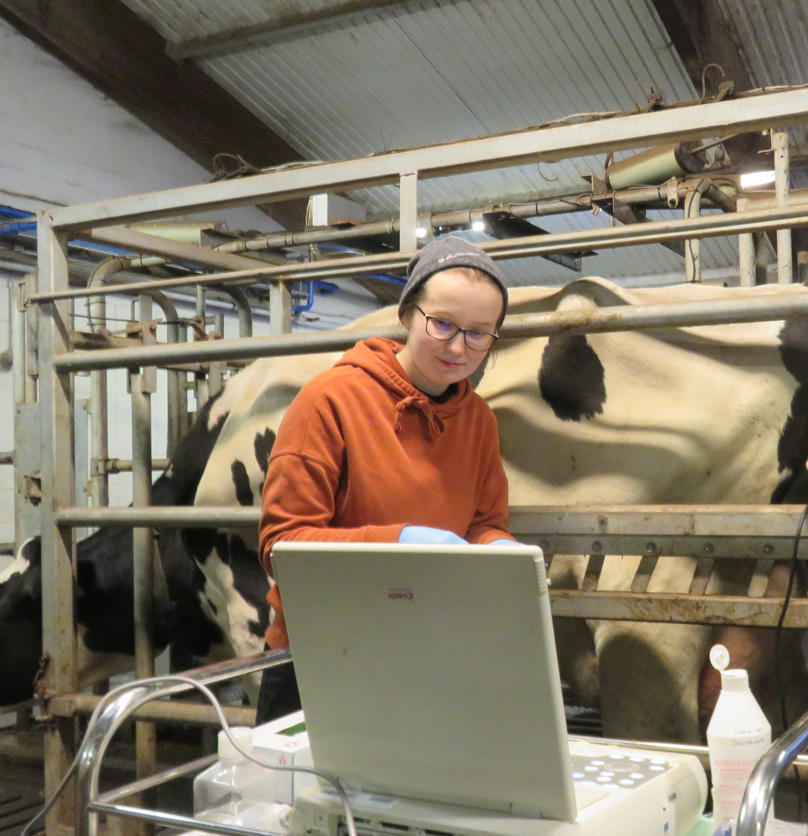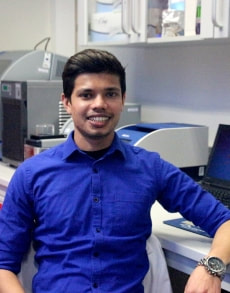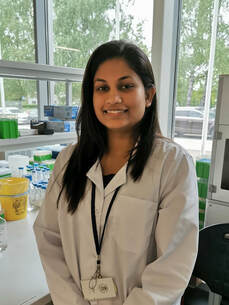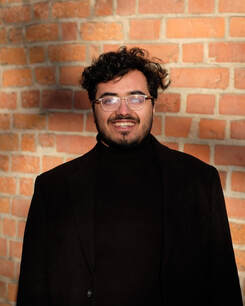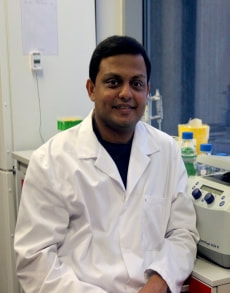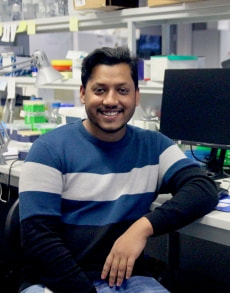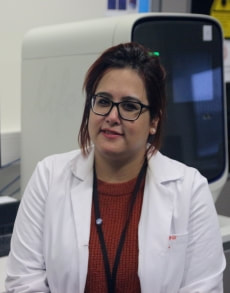ERA Chair holder |
|
Alireza Fazeli
|
Professor Alireza Fazeli has over 20 years of experience of conducting multidisciplinary research in world-class universities and research institutions around the globe. During this time, he has developed vast experience using different “OMICS” technologies such as genomics and proteomics in translational research in the field of immune, reproductive and developmental medicine. In particular he has sought to investigate the Periconception Environment and its effect on the offspring epigenetic profile, maternal interactions with gametes and embryos as well as understanding the mechanisms involved in the mediation of the innate immune system in the female reproductive tract in health and disease.
In carrying out this work, he has developed an extensive network of contacts, having collaborated with a wide variety of excellent researchers and scientists from academia, industry and pharma from different countries. This is illustrated in the two successful EU-wide research programs he has chaired and vice-chaired: Gemini and Epiconcept each involving more than 30 different European and European Associated countries with over 400 active researchers originating from different academic institutions. Prof Fazeli has also served as chairman of the British Andrology Society that is an international Learned Society with membership from all over the globe for 3 years. He has also served as Head of the Academic unit of Reproductive and Developmental Medicine at Sheffield University, managing over 50 academics, technical, administrative, post-graduate research and taught students. During his research career, he has published well over 250 scientific communications of which 90 are published in peer reviewed high quality scientific journals. In addition to professional scientific media, he has sought to disseminate his research in the public press and in different forms of media. From art objects exhibited in public art galleries to video clips on YouTube. His goal in these efforts have been to make science understandable for all, in particular the younger generations so as to inspire and educate them to pursue scientific careers. He hopes that his research make a difference in day to day lives of ordinary people. |
Senior research fellows |
|
Suranga Kodithuwakku
|
Suranga graduated from the University of Peradeniya, Sri Lanka majoring in Animal Sciences in year 2004 with further training and conducting research at the Obihiro University of Agriculture and Veterinary Medicine, Hokkaido, Japan in Animal Reproductive Biology. Later, he completed the PhD in year 2011 at the Department of obstetrics and Gynaecology, Faculty of Medicine, The University of Hong Kong, Hong Kong in Reproductive Biology and Molecular Biology concentrating on molecular and cell biological aspects of human endometrial receptivity, embryo implantation and tubal ectopic pregnancy. In addition, he received further training in advanced molecular and cellular aspects of reproductive biology from MBL, USA in year 2014.
After the doctoral training, Suranga joined as a Senior Lecturer at the Department of Animal Science, University of Peradeniya, Sri Lanka for teaching and leading a research laboratory as a principal investigator and currently he holds a full professorship at the same department as well. Suranga was a Commonwealth Titular Fellow in year 2018 and held joint appointments at LKS Faculty of Medicine, the University of Hong Kong as a Research Associate. Suranga’s research interests are mainly focused on molecular and cellular biological aspects in reproductive biology of human and farm animals. Moreover, he has been working on the other related areas like reproductive toxicology, molecular diagnostics/characterization, disease modelling /animal models, bioactive natural compounds screening and cancer biology as well. |
Research fellows
|
Kasun Madhuranga Godakumara Godagedara
|
Kasun Godakumara started his research career in the University of Peradeniya, Sri Lanka where he studied hard tissue biology in osteoporosis conditions. He earned his Bachelor’s in Medical Laboratory Science and Master of Philosophy in Biotechnology from the University of Peradeniya in 2013 and 2016 respectively. After being employed as a laboratory analyst in the chemical pathology sector, he joined the University of Tartu as a doctoral student in 2018. He was attached to the ERA Chair of Translational Genomics (TransGeno) under the supervision of Prof Alireza Fazeli. His studies are focused on extracellular vesicle based embryo maternal communication. Over time, he has gained expertise in numerous molecular biological, cell biological and bioinformatical technologies related to embryology and the biology of extracellular vesicles.
|
Getnet Balcha Midekessa |
Getnet Midekessa received his BSc in Applied Chemistry from Hawassa University, Ethiopia. Following graduation, he worked in both food and pharmaceutical industries in Ethiopia. Later he completed his master's studies in protein science and biotechnology from the University of Oulu, Finland. During his master studies and post-graduation, he worked on projects involving protein characterization and extracellular vesicles research at the Faculty of Biochemistry and Molecular Medicine at the University of Oulu.
Getnet started his doctoral study in March 2018 at the Institute of Biomedicine and Translational Medicine, University of Tartu under the supervision of Prof. Fazeli. His research interests focus on the detection of surface extracellular vesicles using different biosensing technologies. As part of his research, he is also developing a tool to investigate the colloidal stability of extracellular vesicles for future drug delivery systems. |
|
Dulmini Nanayakkara Sapugahawatte
|
Dulmini has received her bachelor’s degree with first class and Distinction from the Mangalore University, India majoring in Microbiology in the year 2013. Then, she completed her master’s degree in Medical Microbiology at the University of Peradeniya, Sri Lanka in 2016. Later, she completed her PhD in year 2022 at the Department of Microbiology, Faculty of Medicine, the Chinese University of Hong Kong, Hong Kong SAR in Microbiology. Her doctoral research focus was “Characterization of Streptococcus agalactiae from humans and animals’ and it involved the investigation of antimicrobial resistance, detection of possible zoonotic traits of GBS and application of novel MALDI-TOF-MS based typing method in collaboration with Swiss Tropical and Public Health Institute (Swiss TPH), Switzerland apart from genomics. Dr. Dulmini has won President’s Awards for Scientific Research in 2019 and National Research Council (NRC) Merit awards for Scientific Research in 2021 for her previous research work. Furthermore, she has been featured in the 1 million Women in STEM (Million STEM) campaign in the year 2020 (https://www.1mwis.com/profiles/Dulmini-Nanayakkara ) due to her research contribution to field of Microbiology.
After the doctoral training, she worked as a postdoctoral research fellow at the Chinese University of Hong Kong and dealt with several research works related to antimicrobial resistance, one-health and microbiome. Her research interests are mainly focused on molecular epidemiology of Gram-positive bacterial infections, antimicrobial resistance and dissemination in one health context. Moreover, she has been working on the other areas such as antimicrobial resistance and dissemination in Gram negative bacteria, development of novel bacterial typing methods and gut microbiome. |
PhD students
Gayandi Ekanayake |
Gayandi Ekanayake has started her scientific career in the University of Kelaniya, Sri Lanka where she received her BSc (Honors) degree majoring Botany (Plant Sciences) and MSc degree in Crop Protection and Plant Biotechnology in 2018 and 2020 respectively. During her Master’s studies, she worked as a research assistant for two India-Sri Lanka collaborative research projects namely, “High throughput genotyping to expedite the genetic characterization and dissection of important agronomic traits of tea” and “Genetic analysis of plant pigments of tea (Camellia sinenisis L.)” conducted by the Tea Research Institute of Sri Lanka. After being employed as a specialist at the Institute of Biomedicine and Translational Medicine, University of Tartu for a short period of time, she joined the Estonian University of Life Sciences as a doctoral student in 2021 for a joint PhD project between the ERA Chair of COMBIVET and the ERA Chair of VALORTECH under the supervision of Prof Alireza Fazeli and Prof Rajeev Bhat. Her doctoral studies are focused on purification and characterization of extracellular vesicles (EVs) from plant waste materials and their by-products, specifically from fruits and vegetable wastes as a novel approach for the valorisation of fruit and vegetable wastes.
|
|
Seyed Omid Reza Mousavi
|
Seyed Omid Reza Mousavi did his Master’s degree thesis on cellular and molecular interactions of spermatozoa with fallopian tube epithelial cells, and completed his Master’s degree in Genetics in 2019 from Medical Sciences branch of Azad University in Iran. Currently, he is a PhD student in the Institute of Veterinary Medicine and Animal Sciences at the Estonian University of Life Sciences. As a member of Prof Fazeli’s research group, he is working on the toll-like receptors-mediated functions of extracellular vesicles in embryo-maternal interactions.
|
Subhashini Muhandiram |
Subhashini Muhandiram graduated from University of Peradeniya, Sri Lanka. She has a Bachelor’s degree in Medical Laboratory Science and completed two research projects to fulfill the requirements for her Bachelor’s thesis in Niigata University, Japan on molecular level effects of glutathione supplementation in human colorectal cancer cells and on morphological characterization of mouse dorsal lateral geniculate nucleus. Later, she completed Master of Philosophy degree in Molecular and Cancer Biology and worked on establishing a low cost molecular diagnostic assay for early screening of human papillomavirus infection (HPV) among Sri Lankan females giving emphasis on less and non-invasive sampling methods. During this time she developed her interest in biomarker screening for diagnostic assays, cell biology and reproductive physiology.
Under the supervision of Prof Alireza Fazeli she is involved in designing and performing research studies related to elucidating molecular mechanism of extracellular vesicle mediated signal transduction. |
|
Johanna Piibor
|
Johanna Piibor graduated from Veterinary Medicine in Estonian University of Life Sciences (MVD). During her studies she developed interest in reproductive biology and began her transcendence from large animals to mammalian cells. In 2020 she started doing her PhD in molecular studies of subclinical endometritis. Her work aims to characterize molecular changes in uterine tissue of cattle with subclinical endometritis and its potential use in diagnostics.
|
Chanaka Premathilaka |
Chanaka Premathilaka began his scientific career at the University of Peradeniya, Sri Lanka. He obtained his bachelor’s degree in Molecular Biology and Biotechnology with a minor in Chemistry. Afterward, he completed his MSc in Experimental Biotechnology at the Faculty of Medicine and Postgraduate Institute of Science focused on bone physiology where he examined biochemical changes of bone microarchitecture in an osteoporotic mouse model treated with some traditional cures for osteoporosis. He later enrolled in the Faculty of Veterinary Medicine and Animal Sciences to pursue his Master of Philosophy degree in pathobiology, which was based on assessing and developing a biological intelligent framework for certain vector- borne infectious diseases that recently have become an epidemic in Sri Lanka. With the onset of COVID-19 epidemics around the world in 2020, he took part in research and diagnosis of pandemics as a volunteer scientist. He joined the COMBIVET ERA Chair team in September 2021 as a Ph.D. student specializing in pathophysiology and clinical medicine. The key focus of his work is the development of extracellular vesicles-based tools for understanding host-pathogen interactions in infectious diseases and their utility in disease diagnosis and monitoring under the supervision of Prof Alireza Fazeli, Prof Toomas Orro and Doctor Suranga Kodithuwakku.
|
|
Madhusha Prasadani
|
Madhusha Prasadani, completed her BSc degree (Agriculture Technology and Management, majoring in Animal Science) in the year 2019 from Faculty of Agriculture, University of Peradeniya, Sri Lanka. She continued her master’s (MSc) degree in Biotechnology at the Postgraduate Institute of Agriculture, University of Peradeniya and completed in 2021. She has worked as a graduate research assistant in the fields of environmental studies and oral cancer studies. She joined the COMBIVET ERA Chair team in March 2022 as a PhD student in Veterinary Medicine and Animal Science at the Estonian University of Life Sciences. She is currently working on identifying the potential of milk extracellular vesicles as a biomarker in the discovery of insulin resistance in dairy cattle and humans under the supervision of Prof. Alireza Fazeli, Prof. Hanno Jaakson and Prof. Vallo Volke.
|
|
Deep Bhattacharya
|
Deep Bhattacharya is a graduate of SRM University, Chennai, India. He completed his B.Tech in Biotechnology in 2021 with a focus on Cancer Genetics, Molecular Biology, and Immunology. He furthered his education by obtaining a Master's in Biotechnology from Lund University in 2023, specializing in Synthetic Biology, Probiotics, and Bioprocessing. During his Master's studies, Deep demonstrated notable expertise by securing a gold medal at iGEM, the World Synthetic Biology Competition. His project involved developing a probiotic for bees to address the impact of glyphosate on the declining bee population. Additionally, his master's thesis concentrated on the production and characterization of spider silk protein (Cyllindroform Spidroin), showcasing proficiency in diverse biotechnological applications. Currently, Deep Bhattacharya is a Juniour research fellow at the Estonian University of Life Sciences under the Combivet ERA Chair, working under the guidance of Dr. Suranga Kodithuwakku and Dr. Alireza Fazeli. His research focuses on investigating the role of milk-derived extracellular vesicles in anti-inflammatory and immunomodulatory diseases. Deep's academic achievements and research contributions position him as a valuable professional in the interdisciplinary field of biotechnology, addressing pertinent issues in health and environmental sustainability.
|
Administrative staff
Annika Hurt |
Annika Hurt graduated from Tartu Health Care College with BSc degree in bioanalyst. She started working at the Estonian University of Life Sciences in 2016 as a bioanalyst and teaching assistant in virology and parasitology. In 2021, she joined the team of ERA Chair, COMBIVET and is working as a project assistant.
|
Urszula Malińska-Mark |
Urszula has about 15 years of experience in project creation and management, designing learning paths, and working as a trainer in an international environment. She is a Certified Design Thinking Trainer. Enthusiastic about using creativity and a co-creation approach in her work. Values the most in professional life- creating ambitious and challenging projects. The most interested in - what seems impossible to do. Undaunted optimist, looking for good sides in every situation - according to the principle that "nothing happens without reason". She joined the team of ERA Chair, COMBIVET and is working as a project assistant.
|


